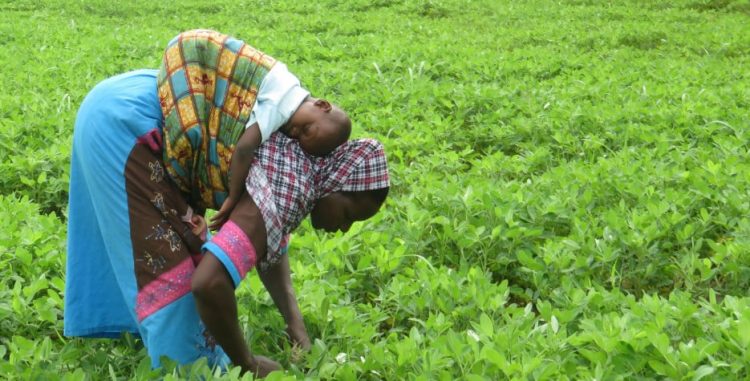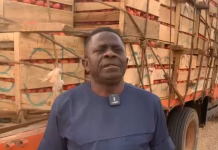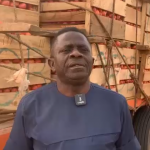Farmers in the Northern Region are grappling with severe hardship due to an extended dry spell that has ravaged crops and left communities struggling to survive.
The ongoing crisis, which has escalated during the 2024 National Farmers’ Day celebration, has prompted urgent calls for government intervention to mitigate the devastating impact.

In the Zabzugu District, farmers voiced their concerns during interviews with Channel One News, warning that the prolonged drought could lead to famine unless immediate help is provided.
John Tani, a local farmer, expressed his despair, saying, “Some call it a curse from God, others blame it on climate change.
Most of our crops have dried up completely, and it’s a disaster for us farmers. Our animals lack water, and yam and cereal production has been especially hard hit.” He urged the government to act swiftly, stressing, “We urge the government to come to our aid.”
Similarly, Rajah Noah shared the struggles faced by his family, lamenting, “We’re facing so many challenges this year due to low rainfall.
As we celebrate Farmers’ Day, I appeal to the government for support. Otherwise, we may not be able to pay our kids’ school fees, as our crops are our livelihood.”
Kodjo Tani, a farmer specializing in maize and yam, spoke about the personal toll of the dry conditions. “I planted eight acres of maize, but it all dried up. Even my yam farm, which I relied on, didn’t make it due to the lack of rain. Without government intervention, survival will be tough,” he said.
Despite hearing promises of government assistance, the farmers have yet to see any tangible support. “We heard that officials would come to identify those affected by the dry spell, but no registration has taken place.
When I asked our agric officer, he said they only did a mass registration with Ghana card IDs,” Tani added, casting doubt on the accuracy and effectiveness of the process.
The drought’s impact has even extended to students like Sambagyaga Timothy, who described how the dry conditions had derailed his education.
“The rain stopped after we planted yam, maize, and groundnuts. I can’t go to school due to the hardship. We’re pleading for government support to sustain our families,” Timothy said.
As the situation worsens, farmers are calling for immediate intervention to address the catastrophic effects of the dry spell, which has left their crops, livestock, and livelihoods hanging by a thread.
The urgent need for government action is now critical to prevent further damage and ensure that farmers in the region can recover and sustain their families.
























































![[FREE FREE MONEY] Predict and Win a Guaranteed GH¢200 From Us EVERY WEEK](https://wordpress.ghanatalksradio.com/wp-content/uploads/2022/02/Predict-and-Win-Final-09-03-2021-218x150.jpg)
![[Predict & Win – 8th/Oct.] WIN A Guaranteed ¢200 From Us This Week](https://wordpress.ghanatalksradio.com/wp-content/uploads/2021/10/maxresdefault-16-218x150.jpg)
![[Predict & Win – 2nd] WIN A Guaranteed ¢200 From Us This Week](https://wordpress.ghanatalksradio.com/wp-content/uploads/2021/09/maxresdefault-50-218x150.jpg)
![[Predict & Win – 25th] WIN A Guaranteed ¢200 From Us This Week](https://wordpress.ghanatalksradio.com/wp-content/uploads/2021/09/maxresdefault-36-218x150.jpg)
![[Predict & Win – 18th] WIN A Guaranteed ¢200 From Us This Week](https://wordpress.ghanatalksradio.com/wp-content/uploads/2021/09/maxresdefault-23-218x150.jpg)








![[National cathedral] See full list of churches that have contributed since 2018](https://wordpress.ghanatalksradio.com/wp-content/uploads/2020/09/Ghana-National-Cathedral-GhanaTalksRadio-100x70.jpg)
![[NSS side chick brouhaha] Court ‘seizes’ car in dispute until final ruling](https://wordpress.ghanatalksradio.com/wp-content/uploads/2023/05/Nimako-100x70.jpg)


